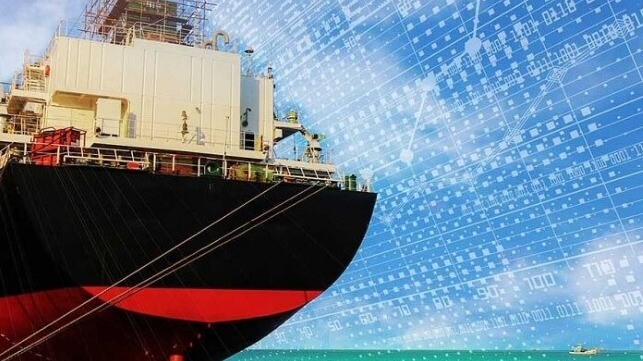Digitalization: Maritime’s Secret Weapon

The shipping industry is setting its sights on efficiency. Thanks to internal corporate social responsibility (CSR) initiatives and external pressures from regulatory agencies, fleet operators are starting to take steps to reduce fuel consumption, improve reporting, and transform voyages to meet the decarbonization goals set forth by the United Nations Global Compact and the IMO.
Both organizations’ guideposts are incredibly optimistic, setting their sights on significant reductions in emissions by 2030 and 2050, respectively. With about 33% of legacy ships expected to fall short of the UN’s guidelines when they take effect in 2023, getting fleets up to snuff won’t be easy—especially as the next-generation, cleaner fuels and optimized ship designs that operators are counting on to transform their operations are still on the horizon.
As such, companies are turning to digitalization as the first step in their journeys to zero-carbon.
These systems help operators leverage the veritable goldmine of data day-to-day operations provide to gain insight into how their fleets operate and how they stack up against looming emissions regulations. They can help build emissions profiles, monitor environmental categories, and generate reports that guide decision-making. They’re a boon for operators looking to dive into the decarbonization process head-on—but they can also do much more than that.
Connected Fleets, Connected Operations
There’s no delicate way to put it. Most fleets are stuck in the past—and that means they’re losing out on valuable data. While other industries have embraced digitalization, maritime operators have let these data points fall away. Of course, this was initially a product of the complications of monitoring vessels at sea and turning that data into actionable insights. But now? It’s just the norm.
In fact, many operators are shocked to see how digitalization transforms the way they do business. The data lake created from an enterprise’s day-to-day business can provide a powerful touchpoint to guide decision-making at every level.
Investing in a way to capture information on historical and ongoing trends within operations often reveals opportunities for improvements throughout the enterprise. Information on voyage status or route deviations can help inform future trips. Insights into fuel consumption, performance speed, time-loss monitoring, can be integrated to provide profiles that illustrate how a fleet compares to industry baselines and competitors.
Perhaps most compelling for operators are the predictive powers that come with data collection. Once a fleet is connected and monitored, diverse data sets can be integrated, analyzed, and applied to model the effects of decisions across the fleet. Paired with predictive and prescriptive reporting, crew members and leaders get a holistic view of what’s happening at sea and on land.
Rather than making choices based on gut feelings instead of traditional wisdom, leaders and crew members can visualize outcomes, compare the impacts of their decisions, and use verifiable metrics to support their points of view. It develops organizational intuition based on past outcomes, predictive modeling capabilities, and objective assessments of the external factors that may affect the situation. The result is more informed decision-making, better outcomes, and visibility into decision-makers’ reasoning.
The Power of Data
We are in an era of tailored solutions and data-driven business—and maritime industry players who resist digital transformation now risk getting left behind. Whether a business is fighting to achieve net zero, comply with upcoming emissions guidelines, or optimize operations to boost business objectives, information is the most powerful tool at its disposal. Without a digitalized fleet, that business is leaving valuable information on the table.

that matters most
Get the latest maritime news delivered to your inbox daily.
These systems become a company’s singular source of truth, monitoring performance, voyage status, and equipment to provide decision-makers with a holistic view of their operations in real-time and information on how similar situations have occurred in the past. They help to break down traditional data silos to empower all departments with the information they need to innovate and curate excellence.
Paul Sells is Global Head of Digital Solutions at ABS.
The opinions expressed herein are the author's and not necessarily those of The Maritime Executive.
